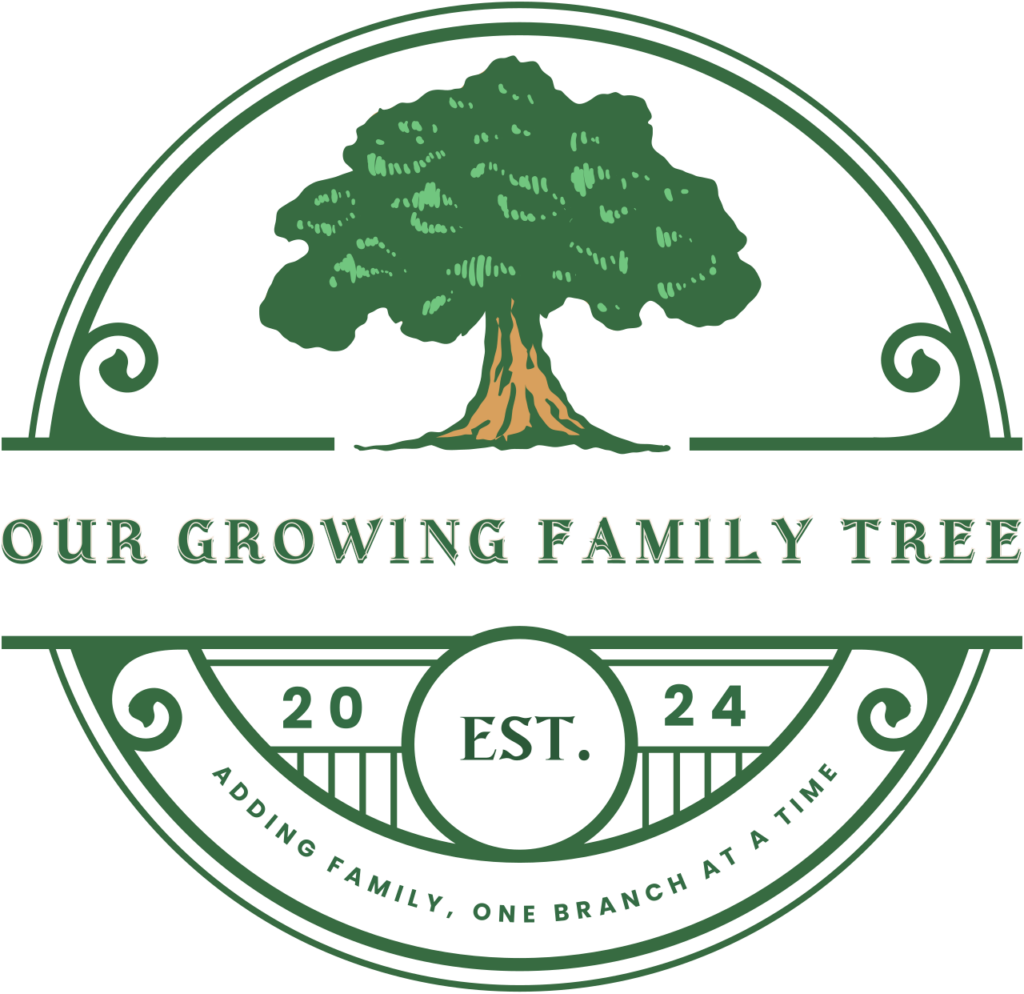
This week’s #52ancestors theme is nicknames, and while we really don’t have too many nicknames in our family, my first thought was to write about my maternal grandparents, Moms and Pops. That’s them, above, in a photo I took in September 1976. Their nicknames weren’t just affectionate terms within the family; they were a way to distinguish them from my paternal grandparents, whom we simply called Grandma and Grandpa.
Moms – Eva Marcisak
Moms (Eva #MARCISAK) was born in 1911 in Mount Braddock, Pennsylvania, a small mining town nestled in Fayette County. Her parents, my great-grandparents, already had two children, Anna and Michael. Eva was their third child and was actually a twin. Unfortunately, her twin brother, Adam, did not survive.
Eva grew up in Unity Township, Pennsylvania, in Westmoreland County, where life revolved around the rhythm of coal mining and family. Her father, Vasil (also known as Charles, or Vasko Marcisak), is listed as a coal miner in both the 1910 and 1920 US Federal Censuses. The town of Hostetter, where she was first enumerated, was small but likely close-knit. According to the 1920 Census, her aunt and uncle, Katherina (#Hurkula) and Nicholas Marcisak, lived just a few houses away.
Life in Unity Township was shaped by the coal mines and the predominantly Slovak/Carpatho-Rusyn community. Families like Eva’s relied on each other for support. Eva likely grew up helping her family with household chores, cooking, and caring for younger siblings or cousins. The ethnic traditions and Catholic faith of the area were central to community life, bringing neighbors together for holidays, festivals, and Sunday gatherings. These cultural influences would have left a lasting mark on Eva.
Pops – George Dubinsky
Pops (George #DUBINSKY) was born in 1910 in Johnstown, Pennsylvania, a steel town with its own challenges and industrial energy. His early years were marked by significant loss. His father, Paul, tragically died in a railroad car accident in 1912, and his mother, Julia, passed away in 1920. At just 10 years old, George became an orphan. His older sister, Mary, along with their brother Michael, stepped in to raise George and his younger siblings, taking on the role of caretakers and providers.
Despite these hardships, George’s resilience shone through. By age 15, he was working various jobs—as a laborer or a messenger—to support the household. Life in Johnstown during the 1910s and 1920s was tough, with steel mills dominating the economy and frequent economic instability. Yet the town’s tight-knit community likely provided some support during these difficult years. The lingering impact of the 1889 Johnstown Flood, which shaped the town’s identity, also underscored the resilience of its people.
As young adults during the Great Depression, Eva and George faced additional struggles, but these challenges shaped their values of hard work, frugality, and perseverance. Their shared experiences laid a foundation for their eventual life together, and they embodied the steady reliability that earned them their affectionate nicknames, Moms and Pops.
A Lifelong Partnership
Their marriage in September 1945 marked the beginning of a lifelong partnership. They not only raised their own two children, my mother and her brother, but also provided for an extended family. Eva’s parents, Anna (#HURKALA) and Vasil, lived with them in their Brooklyn home, along with Anna’s sister, Katherina, after the death of her husband, and Vasil’s brother, Nicholas. Eva’s younger sister, Madeline, and her two children also lived in the household. It must have been a busy, bustling home, filled with family and the values that Eva and George held dear.

Even in their later years, Moms and Pops remained the anchors of the family. Eva’s cooking and care brought everyone together, while George’s steady humor and calm demeanor created a sense of security. Their nicknames captured their roles perfectly: the nurturing mom and the dependable dad figure not just to their children, but to all who came into their home.

Even though they’re no longer with us, their legacy lives on in the stories we share and the values they passed down. Their nicknames are more than just names; they’re reminders of the lives they built and the family they held together. Here’s to Moms and Pops—unforgettable parts of our family history.

Leave a Reply